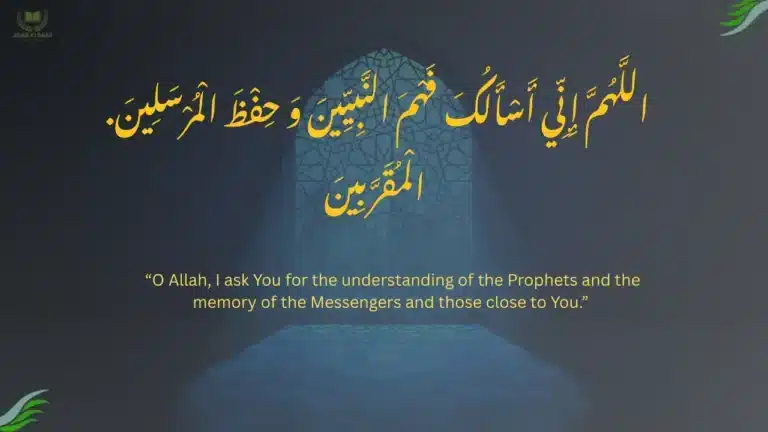Eid al Adha 2026 — What to Know & How to Celebrate
As Muslims around the world prepare for Eid al Adha 2026, the festival brings with it more than celebration — it invites us to pause, remember, and act. Whether you’re planning qurbani, organising family gatherings, or simply want to deepen your understanding, this guide will walk you through what’s ahead and how you can make the most of it.
In 2026, is expected to be celebrated on Wednesday, 26th of May, 2026.
Eid ul Adha 2026 is expected to be celebrated on Wednesday, 26th of May,2026. This date marks the conclusion of Hajj and commemorates the sacrifice of Prophet Ibrahim (علیہ السلام). The exact date may vary based on moon sighting in different regions.
What is Eid al Adha / Qurbani Eid?
Eid al-Adha is often called the “Feast of Sacrifice”. It commemorates the story of Prophet Ibrahim (AS), who demonstrated his devotion by being willing to sacrifice his son in obedience to God — before God substituted a sacrificial ram instead. On the 10th of the Islamic month of Dhū al-Ḥijjah (the 12th and final month) Muslims gather in prayer, perform the ritual sacrifice (qurbani) and share meat with family, friends and those in need.
The festival is tightly linked with the pilgrimage of Hajj, which climaxes just before the day of Eid.
A ritual of gratitude, the act of sacrificing the animal during Eid al Adha is performed to emulate Prophet Ibrahim’s unwavering obedience to God.
As it is mentioned in the Glorious Quran, Qurbani (sacrifice) is a primordial form of worship that has been observed in all Ummahs for ever.
“And for every nation We have appointed a sacrifice; that they should mention the name of Allah over the mute animals which He has provided them.”(Part 17, Surah Al-Hajj, Ayah 34)
Dates & Key Moments for 2026
For 2026, many authorities project that Eid al-Adha will occur around May 26–27, subject to moon sighting. The Day of Arafah (9 Dhū al-Ḥijjah) falls the day before, a moment for fasting and reflection. In Pakistan and neighbouring countries the exact date may vary slightly depending on local moon-sighting committees.
Major Rituals & Practices
Eid Prayer (Salat al-Eid): A special congregational prayer held in the morning of Eid, often followed by a sermon (khutbah).
Qurbani (Sacrifice): Those who are able choose a healthy animal (goat/sheep/cow/camel) for sacrifice. The meat is divided: one portion for the household, one for relatives/friends, and one for those in need.
Takbir & Tashrīq days: From the 10th through the 13th of Dhū al-Ḥijjah many Muslims recite the takbir (“Allāhu Akbar”) in praise of God, especially during the days of Tashrīq.
“اَللهُ أَكْبَرُ ، اَللهُ أَكْبَرُ، اَللهُ أَكْبَرُ، لَا إِلَهَ إِلَّا اللهُ ، وَاللهُ أَكْبَرُ، اَللهُ أَكْبَرُ، وَلِلَّهِ الْحَمْدُ “
Charity & Community: Sharing food, meals, visiting family and neighbours is central. The spirit is one of unity, gratitude and generosity.
Eid al Adha in Pakistan / South Asia: Local Perspective
In Pakistan, weeks before Eid al-Adha the animal markets are busy: goats, sheep and cows are inspected carefully. Families budget for the cost of qurbani and plan who they will invite or distribute meat to. Traditional clothes, festive sweets (mithai), and communal meals are part of the celebration. It’s common for children to receive Eidi (gift money) and for households to host breakfasts after the Eid prayer.
If you are planning your qurbani in Pakistan:
- Choose an animal that is healthy, with good sight, no limp, appropriate age.
The animal must be at least 1 year old for goats , sheep at least six months of age, 2 years old for cows , ox and buffalo. Camels 5 years old.
- Verify the slaughter and distribution plan if you are using a charity or cooperative.
- Share cost with relatives or neighbours to make it more affordable.
- After Eid prayer, plan the meat distribution portion for your family, friends and the poor.
Sunnahs of Eid al Adha and Eid Prayer
On Eid al Adha, there are several Sunnahs (traditions) to observe, which include:
Taking a bath before the Eid prayer.
Wearing new or best clothes.
Avoid eating before performing the Eid prayer.
Offering the Eid prayer in congregation at the mosque or open prayer grounds.
Reciting Takbeer: Muslims recite “اَللهُ أَكْبَرُ ، اَللهُ أَكْبَرُ، اَللهُ أَكْبَرُ، لَا إِلَهَ إِلَّا اللهُ ، وَاللهُ أَكْبَرُ، اَللهُ أَكْبَرُ، وَلِلَّهِ الْحَمْدُ “ as part of the Eid prayer and during the first ten days of Dhul Hijjah.
- Listen To Khutba
- Going to or returning from mosque by using different rutes.
Practical Checklist for Eid al-Adha 2026
- ☐ Check local announcement for moon sighting and Eid date.
- ☐ Set a budget for qurbani and gifts/check if you need to pool costs.
- ☐ Visit or inspect animal market early; verify animal health and age.
- ☐ Decide if you will slaughter yourself or use a registered charity/agency.
- ☐ After Eid prayer, divide meat: keep one part, share one part, donate one part.
- ☐ Plan your Eid breakfast / lunch: menu, guests, leftovers.
- ☐ Visit relatives/neighbours, exchange greetings: “Eid Mubarak.”
- ☐ Reflect on meaning: obedience, sacrifice, charity.
- ☐ Consider environmental impact: proper disposal of waste, avoid unnecessary waste.
- ☐ Keep safety in mind: if gathering large groups, consider health/sanitation protocols.
Meaning & Relevance in 2026 — What’s New?
This year, while the core of the observance remains the same, some realities shape how Muslims might approach Eid al-Adha in 2026:
- Economic pressures: Rising prices of livestock in some regions may make qurbani more costly — planning ahead matters.
- Technology & charity: Many organisations now offer online qurbani donations, especially useful for diaspora or if local markets are inaccessible.
- Environmental/animal-welfare awareness: Some Muslims are becoming more aware of ethical treatment of animals, proper slaughter standards, and reducing waste.
- Global connectivity: With social media and global diaspora, Eid celebrations are more interconnected, but so is the chance for richer storytelling of what the festival means.
At its heart, Eid al-Adha is a reminder: we observe faith by action (not just ritual), we celebrate by sharing, and we remember that sacrifice in small ways matters.
FAQs
Is qurbani mandatory on Eid al-Adha?
It’s prescribed for those who can afford it; for others there are alternatives (e.g., sharing in a communal sacrifice).
What animals are allowed and what are the criteria?
Goats/sheep must be at least 1 year old, cows/buffalos ~2 years, camels ~5 years; and the animal must be healthy (see detailed criteria).
Why do Eid dates vary between countries?
Because the Islamic calendar is lunar and moon-sighting is local; different regions may begin Dhu al-Hijjah on different days.
What if I live abroad and cannot attend the local Eid prayer or slaughter myself?
Many charities and organisations offer facility to perform qurbani in your name abroad or locally; you can still exchange greetings and participate spiritually.
How many days are in Eid ul Adha 2026?
For Eid al‑Adha 2026, the celebration typically lasts 3 to 4 days — the day of Eid and the three following days.
When exactly is Eid al-Adha?
In Pakistan, Eid al‑Adha 2026 is expected to fall on Wednesday,26-27 May 2026.
Keep in mind that the exact date will be formally confirmed after the local moon-sighting.
Conclusion
Eid al-Adha 2026 offers a moment to join together in faith, sacrifice and community – whether in Pakistan or elsewhere. By planning ahead, understanding the rituals and preparing with intention, you can make the celebration meaningful. May the specialness of this day shine through your sharing, your prayers and your reflections.
Eid Mubarak!



